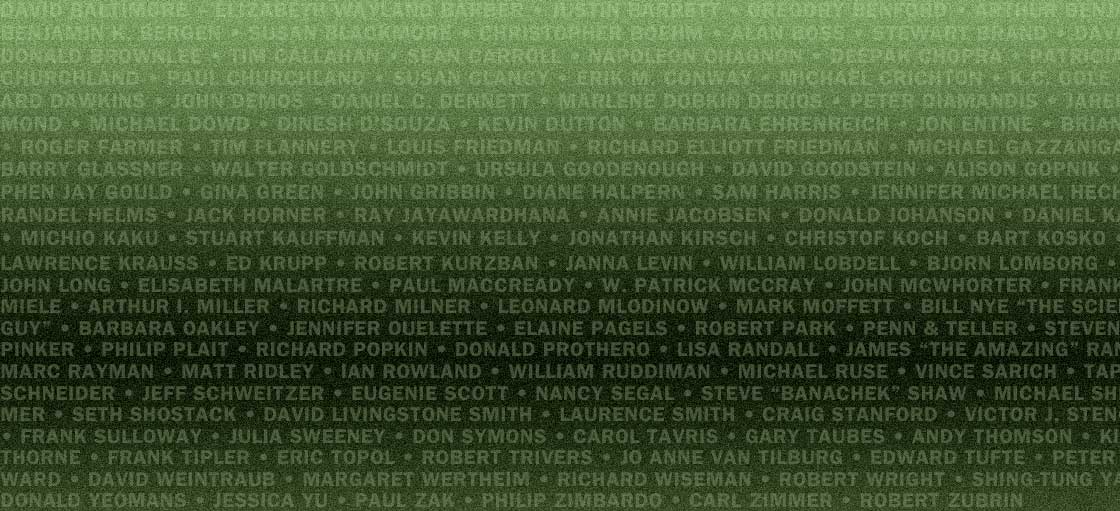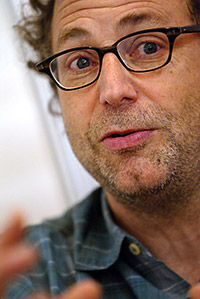Distinguished Science Lecture Series Archives
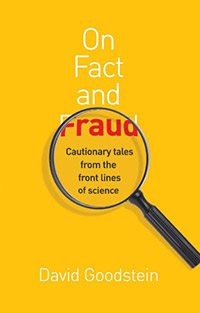
FRAUD IN SCIENCE is not as easy to identify as one might think. When accusations of scientific misconduct occur, truth can often be elusive, and the cause of a scientist’s ethical misstep isn’t always clear. In his lecture based on his new book, On Fact and Fraud, Caltech physicist David Goodstein looks at actual cases in which fraud was committed or alleged, explaining what constitutes scientific misconduct and what doesn’t, and outlines some ethical foundations needed to discern and avoid fraud wherever it may arise. As Caltech Vice Provost he was responsible for investigating all allegations of scientific misconduct, so he has much experience in this matter. Cases include those of Robert A. Millikan, whose historic measurement of the electron’s charge has been maligned by accusations of fraud; Martin Fleischmann and Stanley Pons and their “discovery” of cold fusion; Victor Ninov and the supposed discovery of element 118; Jan Hendrik Schön from Bell Labs and his work in semiconductors; and J. Georg Bednorz and Karl Müller’s discovery of high-temperature superconductivity, a seemingly impossible accomplishment that turned out to be real. Along the way Goodstein offers valuable insights into how modern science is practiced.
Book signing to follow lecture.
Tags:
ethics,
fraud,
morality,
science
A DRUNKARD’S WALK is a type of random statistical distribution with important applications in scientific studies ranging from biology to astronomy. Mlodinow, a visiting lecturer at Caltech and coauthor with Stephen Hawking of A Briefer History of Time, takes us on a walk through the hills and valleys of randomness and how it directs our lives more than we realize. Mlodinow introduces important historical figures such as Bernoulli, Laplace and Pascal, and defines such tricky concepts as regression to the mean and the law of large numbers, which should help readers as they navigate the daily deluge of election polls and new studies on how to live to 100.
Book signing to follow lecture.
Tags:
law of large numbers,
randomness,
regression to the mean,
statistics
WATCH this debate on ABC Nightline
NEW YORK TIMES bestselling author Dr. Deepak Chopra is an MD and board-certified Internist and endocrinologist. He is a Fellow of the American College of Physicians and guest lecturer annually at the Update in Internal Medicine CME Course Beth Israel Hospital Boston Harvard Medical School. He directs the educational programs at the Chopra Center for Well Being. Hailed by Time magazine as one of the 100 icons of the century, and credited as “the poet-prophet of alternative medicine,” Chopra is the author of more than 55 books that have been translated into 35 languages and sold over 20 million copies worldwide.
Dr. Jean Houston (B.A. from Barnard College, Ph.D. in psychology from the Union Graduate School and a Ph.D in religion from the Graduate Theological Foundation) is a scholar, philosopher and researcher in human capacities, and is one of the principal founders of the Human Potential Movement. A powerful and dynamic speaker, she holds conferences and seminars with social leaders, educational institutions and business organizations worldwide. She is the author of 26 books including A Passion for the Possible, Search for the Beloved, Life Force, The Possible Human, Public Like a Frog, A Mythic Life: Learning to Live Our Greater Story, and Manual of the Peacemaker.
Dr. Michael Shermer is the Founding Publisher of Skeptic magazine, a monthly columnist for Scientific American, an adjunct professor at Claremont Graduate University, and the author of The Mind of the Market, Why Darwin Matters, The Science of Good and Evil and Why People Believe Weird Things. Dr. Shermer received his B.A. in psychology from Pepperdine University, M.A. in experimental psychology from California State University, Fullerton, and his Ph.D. in the history of science from Claremont Graduate University. He has appeared on such shows as The Colbert Report, 20/20, Dateline, Charlie Rose, and Larry King Live.
Dr. Sam Harris is a neuroscientist and the author of the New York Times bestsellers The End of Faith and Letter to a Christian Nation. The End of Faith won the 2005 PEN Award for Nonfiction. Harris’s writing has been published in over 15 languages. He is a Co-Founder and CEO of The Reason Project, a nonprofit foundation devoted to spreading scientific knowledge and secular values in society. He received a degree in philosophy from Stanford University and a Ph.D. in neuroscience from UCLA.
Book signing to follow debate.
Tags:
brain,
consciousness,
debate,
God,
mind,
science
Some central questions in the natural and social sciences can’t be answered by controlled laboratory experiments, often considered to be the hallmark of the scientific method. This impossibility holds for any science concerned with the past. In addition, many manipulative experiments, while possible, would be considered immoral or illegal. One has to devise other methods of observing, describing, and explaining the world. Jared Diamond, author of the Pulitzer-prize winning Guns, Germs, and Steel and the bestselling work in environmental history Collapse, here reveals for the first time his methodology in the applied use of natural experiments and the comparative method. In this lecture based on his new edited volume, Natural Experiments of History, Diamond presents eight comparative studies drawn from history, archaeology, economics, economic history, geography, and political science. The studies cover a spectrum of approaches, ranging from a non-quantitative narrative style to quantitative statistical analyses. The studies range from a simple two-way comparison of Haiti and the Dominican Republic, which share the island of Hispaniola, to comparisons of 81 Pacific islands and 233 areas of India. The societies discussed are contemporary ones, literate societies of recent centuries, and non-literate past societies.
Browse all books by Jared Diamond in Shop Skeptic.
Tags:
archaeology,
comparative method,
economic history,
economics,
experiments,
geography,
history,
Jared Diamond,
natural experiments,
non-quantitative narrative,
political science,
science,
skepticism

MACARTHUR “GENIUS” FELLOW Rebecca Goldstein (Ph.D. in philosophy from Princeton and author of The Mind-Body Problem, Properties of Light, and studies of Kurt Gödel and Baruch Spinoza) reads from her new novel and speaks about how she uses her characters to explore the tension between belief and skepticism. These positions cannot be understood through rational argument alone—they also must be explored from the point of view of individual people caught in the raptures and torments of religious experience in all their variety. 36 Arguments for the Existence of God plunges into the great debate of our day: the clash between faith and reason. World events are being shaped by fervent believers at home and abroad, while a new atheism is asserting itself in the public sphere. On purely intellectual grounds the skeptics would seem to have everything on their side. Yet people refuse to accept their seemingly irrefutable arguments and continue to embrace faith in God as their source of meaning, purpose, and comfort. Why? Goldstein gives us her answer through fiction and philosophy.
Book signing to follow lecture.
Tags:
atheism,
faith,
God,
meaning,
purpose,
reason
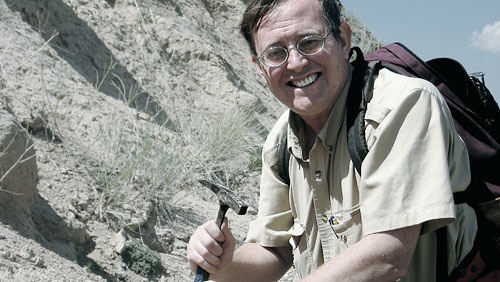
Donald R. Prothero’s science books combine straightforward research with first-person narratives of discovery, injecting warmth and familiarity into a profession that desperately needs a more appealing approach to nonspecialists. Bringing his trademark style to an increasingly relevant subject of concern, Prothero links the climate changes that have occurred over the past 200 million years to their effects on plants and animals, especially contrasting the extinctions that ended the Cretaceous period, which wiped out the dinosaurs, with those of the later Eocene and Oligocene epochs. Prothero begins with the “greenhouse of the dinosaurs,” the global-warming episode that dominated the Age of Dinosaurs and the early Age of Mammals, and concludes with observations about Nisqually Glacier and other locations that prove global warming is happening much quicker than previously predicted, irrevocably changing the balance of the earth’s thermostat.
Dr. Prothero is a professor of geology and paleontology at Occidental College and the author of the wildly successful bestseller Evolution: What the Fossils Say and Why it Matters.
Tags:
anthropogenic global warming,
climate change,
dinosaurs,
extinction,
global warming,
paleontology
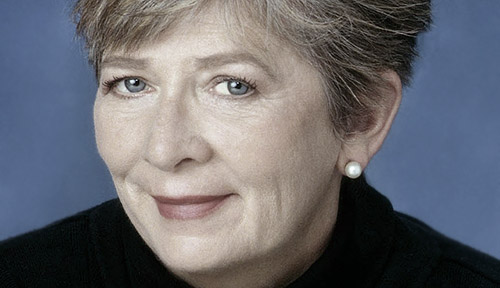
How the Relentless Promotion of Positive Thinking
has Undermined America
In this utterly original take on the American frame of mind, Barbara Ehrenreich traces the strange career of our sunny outlook from its origins as a marginal 19th-century healing technique to its enshrinement as a dominant, almost mandatory, cultural attitude. Evangelical mega-churches preach the good news that you only have to want something to get it, because God wants to “prosper” you. The medical profession prescribes positive thinking for its presumed health benefits. Academia has made room for new departments of “positive psychology” and the “science of happiness.” Nowhere, though, has bright-siding taken firmer root than within the business community, where, as Ehrenreich shows, the refusal even to consider negative outcomes — like mortgage defaults — contributed directly to the current economic crisis. With the mythbusting powers for which she is acclaimed, Ehrenreich exposes the downside of America’s penchant for positive thinking: On a personal level, it leads to self-blame and a morbid preoccupation with stamping out “negative” thoughts. On a national level, it’s brought us an era of irrational optimism resulting in disaster.
Barbara Ehrenreich is the bestselling author of sixteen previous books, including the bestsellers Nickel and Dimed and Bait and Switch.
Tags:
economic crisis,
economics,
markets,
optimism,
positive thinking,
psychology,
self help
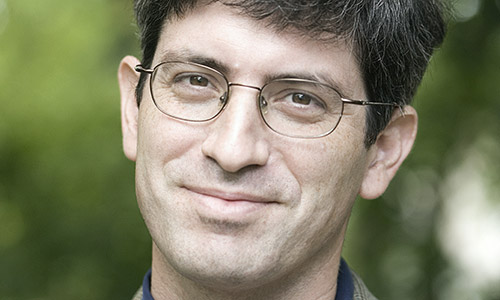
The topic of this lecture was originally supposed to be “The Tangled Bank: An Introduction to Evolution”.
Carl Zimmer, an award-winning science writer for the New York Times, Discover magazine, Scientific American, and others takes readers on a frightening tour of the H1N1 flu virus, how it evolved, and what deadly diseases tell us about how evolution works. Reviewing the history of influenza going back over a century, including a complete analysis of the 1918 influenza outbreak that killed tens of millions of people around the world, Zimmer includes remarkable graphics demonstrating exactly what happens from the moment a virus enters a body to the death of its human host. Along the way Zimmer reveals how vital evolution is to all branches of modern biology — from the fight against deadly antibiotic-resistant bacteria to the analysis of the human genome.
Carl Zimmer is the author of seven books, including Evolution: The Triumph of an Idea and Microcosm: E. coli and the New Science of Life.
Tags:
bacteria,
biology,
disease,
DNA,
evolution and/or creationism,
genetics,
genome,
H1N1,
history,
influenza,
science
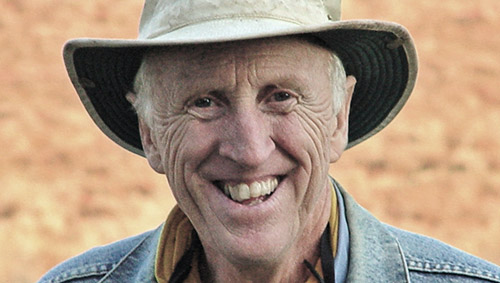
NOTE SPECIAL DAY/TIME FOR THIS LECTURE: Monday, October 26 at 7:00pm
According to Stewart Brand, a lifelong environmentalist (and creator of the Whole Earth Catalog) who sees everything in terms of solvable design problems, three profound transformations are under way on Earth right now. Climate change is real and is pushing us toward managing the planet as a whole. Urbanization — half the world’s population now lives in cities, and 80% will by midcentury — is altering humanity’s land impact and wealth. And biotechnology is becoming the world’s dominant engineering tool. In light of these changes, Brand suggests that environmentalists are going to have to reverse some long held opinions and embrace tools that they have traditionally distrusted. Only a radical rethinking of traditional green pieties will allow us to forestall the cataclysmic deterioration of the earth’s resources. Whole Earth Discipline shatters a number of myths and presents counterintuitive observations on why cities are actually greener than countryside, how nuclear power is the future of energy, and why genetic engineering is the key to crop and land management. With a combination of scientific rigor and passionate advocacy, Brand shows us exactly where the sources of our dilemmas lie and offers a bold and inventive set of policies and solutions for creating a more sustainable society.
Tags:
alternative energy,
anthropogenic global warming,
biotechnology,
climate change,
environmentalism,
genetic engineering,
global warming,
nuclear power,
urbanization

What Children’s Minds Tell Us About Truth, Love,
and the Meaning of Life
Leading child psychologist and philosopher Alison Gopnik examines children’s imaginations, their consciousness, and their ideas about love and morality, and finds that the way they play, pretend, and explore are actually part of the most profound and fundamental aspects of human nature. It is through play and imagination that children solve problems of morality, learn about the world around them, and create bonds with other people.
Dr. Gopnik, a professor of psychology at the University of California at Berkeley, is the author of The Scientist in the Crib.
Tags:
consciousness,
human nature,
imagination,
morality,
psychology
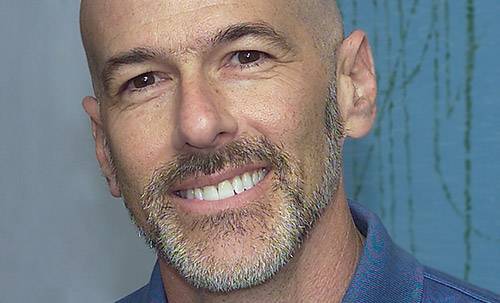
Morality is our biological destiny. We each have within us the awesome power to create our own meaning in life, our own sense of purpose, our own destiny. With a natural ethic we are able to move beyond the random hand of birth to pave our own road to a better life. With the ability to choose to be good comes the obligation to make that choice; choosing to be moral is what makes us special as individuals and as a species. We are special if we choose to be, if we ourselves decide to use our big brains to manage wisely our relationships with one another and with our environment.
Dr. Schweitzer spent much of his youth underwater pursuing his lifelong fascination with marine life. He obtained his doctorate from Scripps Institution of Oceanography through his neurobehavioral studies of sharks and rays. He has published in an eclectic range of fields, including neurobiology, marine science, international development, environmental protection and aviation, and he worked the White House as Assistant Director for International Science and Technology. Praise from Bill Maher: “This is the book that ties it all together — the problems that religion creates in solving our looming problems, and the unholy environmental mess we’re in. I’d say that someday we’re going to have to listen to this man, but the truth is, that day is NOW.”
Tags:
biology,
ethics,
morality

In this sweeping story that takes us from the Stone Age to the Information Age, bestselling author Robert Wright unveils an astonishing discovery: there is a hidden pattern that the great monotheistic faiths have followed as they have evolved. Through the prisms of archaeology, theology, and evolutionary psychology, Wright’s findings overturn basic assumptions about Judaism, Christianity, and Islam, and are sure to cause controversy. He explains why spirituality has a role today, and why science, contrary to conventional wisdom, affirms the validity of the religious quest. And this previously unrecognized evolutionary logic points not toward continued religious extremism, but future harmony.
Robert Wright introduced the world to evolutionary psychology through his wildly popular bestselling book The Moral Animal: Why We Are the Way We Are. His most controversial book, Nonzero: The Logic of Human Destiny, put forth the theory that human evolution and the history of civilization contain within them an inevitable trend toward more and more win-win nonzero game exchanges between people and groups that has led humans to dominate the planet. In his new book, The Evolution of God, Wright reveals his new theory about the power of globalization and cultural integration.
Tags:
evolution and/or creationism,
evolutionary psychology,
faith,
God,
history of civilization,
morality,
nonzero,
religion

How the Marriage of Science and Religion
Will Transform Your Life and Our World
The Reverend Michael Dowd is one of the most inspiring speakers in America today. His lecture/sermon is based on his bestselling book, Thank God for Evolution: How the Marriage of Science and Religion Will Transform Your Life and Our World, which has been endorsed by 5 Nobel Prize-winning scientists and dozens of other scientific and religious luminaries across the spectrum. Since April 2002, he and his wife, Connie Barlow, an acclaimed science writer, have lived permanently on the road sharing a sacred view of evolution with religious and secular audiences of all ages, as America’s evolutionary evangelists. At home in both conservative and liberal settings, and uniquely gifted at building bridges between religious and nonreligious people, Michael — once a young-earth creationist minister — is passionate about sharing the 14-billion-year epic of evolution in ways that uplift and expand heart, mind, and soul. Don’t miss this unique performance.
Tags:
evolution and/or creationism,
religion,
science
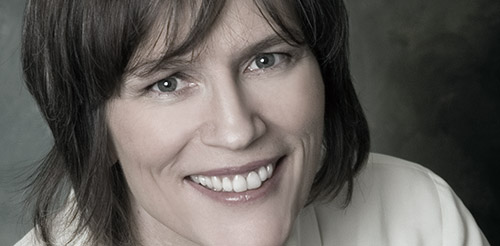
One of the most difficult problems in the social sciences is understanding why some people intentionally inflict emotional and physical pain on others. Such intentional pain occurs not only on a local level — within families, with “friends,” or in work situations, but also on a national and international scale — Hitler’s Holocaust, Stalin’s purges, and Chairman Mao’s slaughter of millions. Neuroscience is providing the potential for a revolution in our understanding of why “bad” people do what they do.
Professor Barbara Oakley uses evolutionary theory — as well as an unusually adventurous background that has earned her the nickname of a “female Indiana Jones,” to knit together disparate pieces of research that point toward answers to some of the most compelling questions in the social sciences and humanities. Dr. Oakley’s work at Oakland University involves bioengineering in many different contexts, such as the effects of electric fields on cells and the complex relationship between neurocircuitry and social behavior. She worked for several years as a Russian translator on Soviet trawlers in the Bering Sea; she met her husband while working as a radio operator at the South Pole station in Antarctica; and she has gone from private to regular Army Captain in the U.S. military. Her critically acclaimed, tongue-in-cheek titled book Evil Genes: Why Rome Fell, Hitler Rose, Enron Failed, and My Sister Stole My Mother’s Boyfriend takes readers on a provocative exploration of the darkest recesses of the human personality.
Tags:
behavior,
behavioral science,
evolutionary theory,
Hitler,
Holocaust,
neuroscience,
science,
sociology
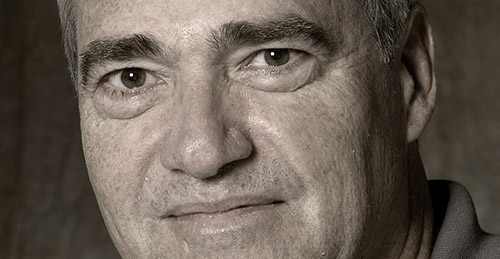
Is Life on Earth Ultimately Self-Destructive?
In The Medea Hypothesis, renowned paleontologist Dr. Peter Ward proposes a revolutionary and provocative vision of life’s relationship with the Earth’s biosphere, one that has frightening implications for our future — yet also offers hope. Using the latest discoveries from the geological record, he argues that life might be its own worst enemy. This stands in stark contrast to James Lovelock’s Gaia hypothesis — the idea that life sustains habitable conditions on earth. In answer to Gaia, which draws on the idea of the “good mother” who nurtures life, Ward invokes Medea, the mythical mother who killed her own children. Could life by its very nature threaten its own existence? Ward demonstrates that all but one of the mass extinctions that have struck Earth were caused by life itself. He looks at our planet’s history in a new way, revealing an Earth that is witnessing an alarming decline of diversity and biomass — a decline brought on by life’s own “biocidal” tendencies. And the Medea hypothesis applies not just to our planet — its dire prognosis extends to all potential life in the universe. Breathtaking in scope, The Medea Hypothesis is certain to arouse fierce debate and radically transform our worldview.
Tags:
ecology,
geology
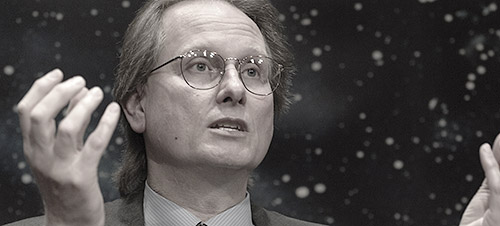
The Search for Living Planets
We are now nearing a turning point in our quest for life in the universe — we now have the capacity to detect Earth-like planets around other stars. But will we find any? In The Crowded Universe, renowned astronomer Dr. Alan Boss — a research scientist at the Carnegie Institution and a fellow of the American Geophysical Union — argues that based on what we already know about planetary systems, in the coming years we will find abundant Earths, including many that are indisputably alive. Life is not only possible elsewhere in the universe, Boss argues — it is common. Boss describes how our ideas about planetary formation have changed radically in the past decade and brings readers up to date on discoveries of bizarre inhabitants of various solar systems, including our own. America must stay in this new space race, Boss contends, or risk being left out of one of the most profoundly important discoveries of all time: the first confirmed finding of extraterrestrial life.
Tags:
aliens,
astronomy,
galaxies,
planetary systems,
universe
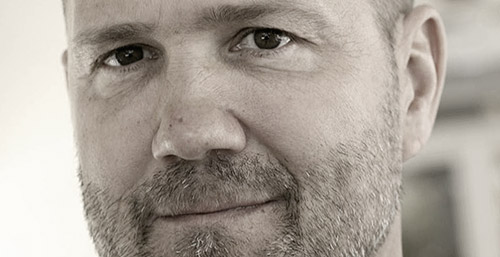
How I Lost My Faith Reporting on Religion in America
— and Found Unexpected Peace
William Lobdell’s journey of faith — and doubt — is one of the most compelling spiritual memoirs of our time. Lobdell became a born-again Christian in his late 20s when personal problems drove him to his knees in prayer. As a newly minted evangelical, Lobdell — a veteran journalist — noticed that religion wasn’t covered well in the mainstream media, and he prayed for the Lord to put him on the religion beat at a major newspaper. In 1998, his prayers were answered when the Los Angeles Times asked him to write about faith. What happened next was a roller-coaster of inspiration, confusion, doubt, and soul-searching as his reporting and experiences slowly chipped away at his faith. While reporting on hundreds of stories, he witnessed a disturbing gap between the tenets of various religions and the behaviors of the faithful and their leaders. He investigated religious institutions that acted less ethically than corrupt Wall Street firms. He found few differences between the morals of Christians and atheists. As this evidence piled up, he started to fear that God didn’t exist. He explored every doubt, every question — until, finally, his faith collapsed. Hear his remarkable story in this lecture based on his new book.
Tags:
atheism,
Christianity,
doubt,
faith,
God,
journalism,
morality,
religion

A Darwin Celebration
2009 marks the 200th anniversary of Charles Darwin’s birth on February 12, 1809 — the same day as Abraham Lincoln — and the 150th anniversary of the publication of On the Origin of Species on November 24, 1859. Come join us for a special celebration of the life and science of one of the greatest scientists in history.
Historian of science Dr. Michael Shermer will review the remarkable life of Darwin and explain how he arrived at his theory of evolution. Paleontologist and geologist Dr. Donald Prothero will give a brief overview of how evolutionary theory has changed since Darwin’s time. Dr. Joel Smith, a Caltech biologist specializing in biological information processing, stem cell research, and the evolution of development (evo-devo) will discuss Darwin in the Age of System Biology, or how complex organisms like ourselves could have evolved out of significantly simpler organisms. And other scientists will consider the many aspects of Darwin’s remarkable theory.
Tags:
biology,
Darwin,
evolution and/or creationism,
geology,
origin of species,
paleontology,
science

Black Holes are the ultimate death state of very massive stars. Collapsing under their own weight, the dead cores will curve spacetime so strongly that not even light can escape. Black holes emit no light and reflect no light. They are dark against a dark sky and effectively invisible. When two black holes move in orbit around each other, they churn up the spacetime around them, emanating waves in the fabric of space itself. These waves are like the waves on a drum and are closest in analogy to sound waves: the black holes are singing. (more…)
Tags:
astronomy,
black holes,
gravity,
physics,
science,
stars,
universe,
waves
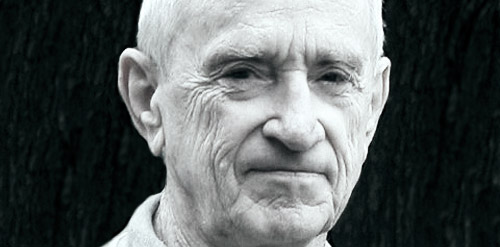
From uttering a prayer before boarding a plane, to exploring past lives through hypnosis, why has superstition become so pervasive in an age of science? Robert Park, the University of Maryland physics professor and the best-selling author of Voodoo Science, asks why people persist in superstitious convictions long after science has shown them to be ill-founded. He takes on supernatural beliefs from religion and the afterlife to New Age spiritualism and faith-based medical claims. He examines recent controversies and concludes that science is the only way we have of understanding the world. (more…)
Tags:
acupuncture,
belief,
homeopathy,
Intelligent Design,
naturopathy,
parapsychology,
prayer,
religion,
science,
souls,
spirituality,
superstition
← PREVIOUS
NEXT →

